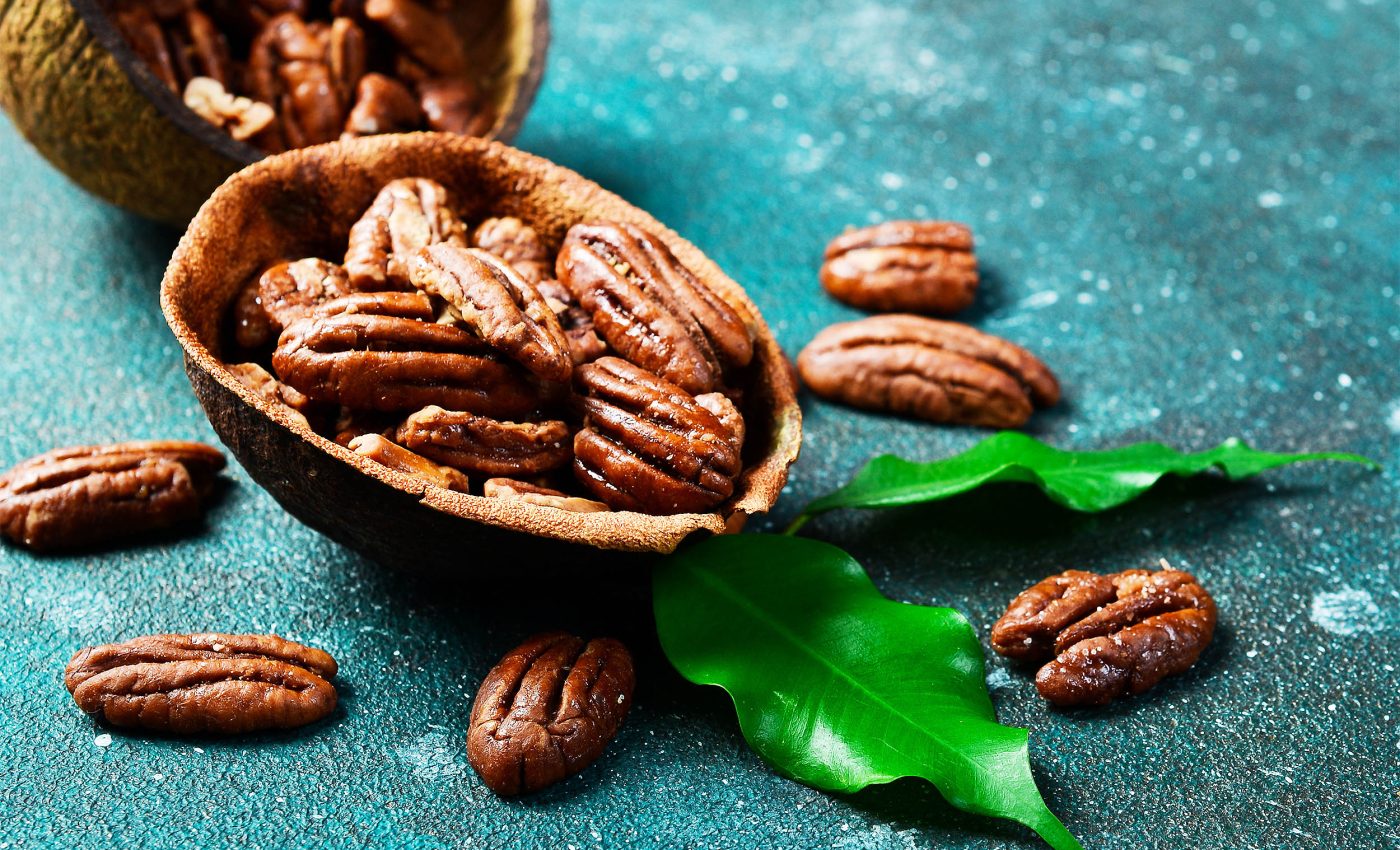
Just one handful of these nuts each day can lower cholesterol and boost heart health, studies show
A new clinical trial suggests a modest, tasty fix for stubborn cholesterol. Eating two ounces of pecan halves every day for twelve weeks trimmed participants’ total cholesterol by a little over 8 mg/dL and lowered their LDL numbers as well.
Lead author Tricia L. Hart of Pennsylvania State University conducted the study with 138 adults who already carried at least one metabolic syndrome risk factor.
Understanding pecans – the basics
Pecans (Carya illinoinensis) are a species of hickory native to the southern United States and parts of Mexico, prized for their nutrient-dense nuts and economic value.
Botanically classified as drupes, pecans develop from a flower with a single ovary and encase their edible seed in a hard shell within a green husk.
The tree thrives in well-drained alluvial soils and requires a temperate climate with warm summers and cold winters to complete its dormancy cycle.
Researchers have studied its genome to improve traits such as disease resistance, drought tolerance, and nut quality, which are crucial as climate variability intensifies.
Pecan trees can live for over a century and often require a decade or more before producing commercially viable yields, making early-stage cultivation decisions critical for long-term success.
Linking pecans and low cholesterol
Researchers randomized volunteers into two groups. One group kept its usual snack pattern, while the other replaced whatever chips or cookies they normally grabbed with raw, unsalted pecans, Carya illinoinensis, measured to 57 grams a day.
By the final blood draw, the pecan group’s LDL, often nicknamed “bad” cholesterol, fell by 7 mg/dL, and triglycerides slid by 16 mg/dL, whereas the control numbers barely budged.
No significant changes appeared in blood pressure or flow‑mediated dilation, so the nut’s magic seems aimed squarely at lipids rather than vessel stiffness.
What happens inside the body
Pecans supply roughly 12 grams of heart‑friendly monounsaturated fat in a one‑ounce handful, plus a spectrum of polyphenols and 34 mg of magnesium.
Cardiologist Matthew Segar of the Texas Heart Institute explains, “They also suppress post‑meal triglyceride spikes, which is especially important because temporary fat surges can contribute to heart disease over time,” said Segar.
Oleic acid, the same fatty acid abundant in olive oil, forms about 60 percent of pecan fat. Replacing refined‑carbohydrate snacks with this fatty acid profile can decrease hepatic very‑low‑density lipoprotein synthesis, cutting the pool of LDL precursors.
Cholesterol numbers behind pecans
The average total‑cholesterol drop of 3.6 percent in Hart’s trial might look small, yet a 5 mg/dL LDL reduction translates to a roughly 4 percent cut in cardiovascular event risk over five years.
An updated meta‑analysis pooling more than 50 nut trials shows similar lipid shifts across various tree nuts.
“I would interpret this trial as confirmation that replacing unhealthy snacks with a modest amount of healthy snacks, including nuts and pecans if you enjoy them, is one way to promote a heart‑healthy diet,” said Brett Victor, MD, Cardiology Consultants of Philadelphia.
Because snacks account for about one‑fifth of daily calories for U.S. adults, targeting that slot offers an easy win without a complete menu overhaul.
Other health benefits
Hart’s team noted a nine‑point jump in Healthy Eating Index scores among pecan eaters, indicating better overall diet quality.
Fiber climbed by three grams a day and added‑sugar intake fell, echoing Dietary Guidelines advice to emphasize nutrient‑dense plant foods.
“Ellagic acid in pecans reduces inflammation and oxidative stress, and flavonoids improve blood vessel function, promoting better circulation and cardiovascular wellness,” said preventive dietitian Michelle Routhenstein, RD.
Those anti‑inflammatory touches could help explain observational data linking higher nut consumption, five servings a week or more, to 13 percent lower cardiovascular disease risk.
Putting pecans on the plate
Two ounces works out to roughly 30–35 halves. Sprinkle them over oatmeal, blend into a smoothie, or just keep a small reusable container in your bag; consistency matters more than recipe creativity.
Stick with raw or dry‑roasted pieces to avoid excess sodium and sugar. If flavor boredom strikes, toss them with cinnamon, smoked paprika, or a dash of cocoa powder before roasting at 300 °F for ten minutes.
People watching weight should remember that two ounces deliver about 390 calories. Hart’s participants gained only 1.5 pounds on average, likely because nuts increase satiety, but portion mindfulness still counts.
Not everyone should jump straight into a daily two‑ounce pecan habit without checking their own health context.
People with nut allergies, especially tree nut sensitivities, must avoid pecans entirely, as even trace amounts can trigger severe reactions.
Pecans are also high in caloric density, which can be an issue for those on calorie‑restricted diets. Adding them without adjusting for other energy sources could lead to gradual weight gain, as observed in some participants in the study.
Pecans, cholesterol, and heart health
Tree‑nut research now spans controlled feeding trials, long‑term cohorts, and mechanistic studies on endothelial function.
Together they paint a converging picture: regular nut eaters boast healthier lipid profiles and slightly leaner waistlines than non‑nut eaters.
Replacing just one daily serving of highly processed snacks with a handful of pecans checks multiple boxes, lower carbs, higher fiber, plant protein, and a bundle of antioxidants.
Doctors caution that nuts complement rather than replace statins or lifestyle pillars like exercise, yet this simple swap stands out as one of nutrition’s most agreeable tweaks.
The study is published in The American Journal of Clinical Nutrition.
—–
Like what you read? Subscribe to our newsletter for engaging articles, exclusive content, and the latest updates.
Check us out on EarthSnap, a free app brought to you by Eric Ralls and Earth.com.
—–













